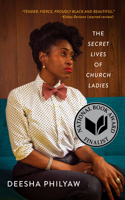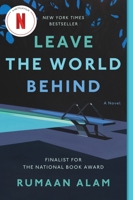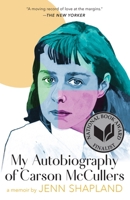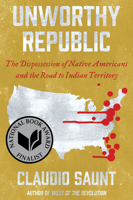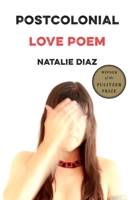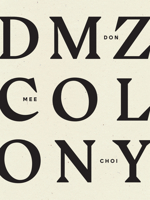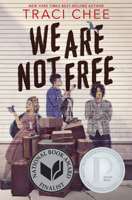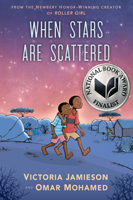The Celebration of Diverse Voices Served Up by the 2020 National Book Awards
Enjoy a Wide Variety of Insights From the Finalists for the Prestigious Awards
By Karen DeGroot Carter • November 16, 2020
Each fall, the literary world buzzes with the news of which 25 books published in the U.S. have been named finalists for that year's National Book Awards. Then, from early October to mid-November, the authors of those books wait to learn whether theirs has won one of the most coveted awards an author can hope for. National Book Awards finalists and winners are selected by a group of writers, translators, critics, librarians, and booksellers in five categories: fiction, nonfiction, poetry, young people's literature, and translated literature. One of the most exciting aspects of this year's National Book Awards is the diversity of the books and authors featured, which include these impressive contenders:
FICTION
The Secret Lives of Church Ladies by Deesha Philyaw
This debut work of fiction from widely published nonfiction writer Deesha Philyaw spans generations as it shines a light on Black women in the South and how they have coped with the many constraints placed upon them. Through nine stories, Philyaw's look at the female relationships that often form the bedrock of a family expands to include the relationships within a community as well?and how Black women have sought to navigate them all.
Leave the World Behind by Rumaan Alam
The third novel by author Rumaan Alams brings issues of race and class to the forefront in its story of a family and an older couple of different backgrounds that unexpectedly cross paths. Questions of truth and trust intertwine in a unique take on what might happen when even the most self-assuredly open-minded among us are forced to confront their biases.
NONFICTION
My Autobiography of Carson McCullers by Jenn Shapland
As indicated by its title, this is anything but a typical memoir. While award-winning nonfiction writer Jenn Shapland worked as an intern in a center that houses cultural and literary archives, she stumbled across love letters exchanged between Southern novelist Carson McCullers and another woman that revealed much more than the assertive, lonely artist Shapland had understood McCullers to have been. As she strives to right the wrong she perceives history has committed with regard to McCullers's legacy, the author grows so close to her subject that it becomes difficult to separate the two.
Unworthy Republic: The Dispossession of Native Americans and the Road to Indian Territory by Claudio Saunt
University of Georgia professor of early American and Native American history Claudio Saunt pulls no punches in this scathing analysis of the so-called Indian Removal Act of 1830. Beginning with the white supremacist and pro-slavery views that compelled Congress to narrowly pass and President Andrew Jackson to sign the controversial bill into law, Saunt's overview covers everything from the tragedies and deaths that befell the 80,000 Native Americans relocated as a result of the law to its long-lasting negative impacts not only on generations of U.S. citizens but on the entire country.
POETRY
Postcolonial Love Poem by Natalie Diaz
Celebrated poet and Arizona State University professor Natalie Diaz infuses this collection—and all her work—with the truths and insights she has always lived as a member of a Native American tribe.
DMZ Colony by Don Mee Choi
A native of South Korea, Don Mee Choi has packed her third collection with prose, photos, and illustrations in addition to poetry as she continues to explore the complex, intersecting patterns pursued for decades by the country in which she was born and the country in which she lives.
YOUNG PEOPLE'S LITERATURE
We Are Not Free by Traci Chee
Through a highly effective, multilayered approach, this historical novel explores the generational impact of the internment of Japanese U.S. citizens during World War II. When a group of contemporary teenagers reflect on their family members who were forced to live in internment camps, they reveal how their lives continue to be influenced by what their family members endured so long ago.
When Stars Are Scattered by Victoria Jamieson and Omar Mohamed
In this captivating graphic novel, award-winning author and illustrator Victoria Jamieson depicts the story of her co-author, Omar Mohamed, who grew up in a refugee camp in Kenya. Hope and heartache intertwine in a look at the realities of life spent in limbo—and the difficult circumstances and decisions so many refugees must face.
TRANSLATED LITERATURE
The Family Clause by Jonas Hassen
Translated from Swedish by translator Alice Menzies, The Family Clause provides a closeup look at a family in Sweden over a brief period of time during which memories and truths are shared—and the lives of combative yet loved family members are changed.
Minor Detail by Adania Shibli
Translated from Arabic by translator Elisabeth Jaquette, this brief novel tells two connected tales fueled by one woman's quest to learn more about the murder of a Palestinian teen in the late 1940s. Insights on the physical and psychological impacts of the constant threat of violence are coupled with the restraint and intensity author Adania Shibli has become known for in this compelling read.
Go here for a full list of the 2020 National Book Awards finalists, and check back after November 18 to learn the winners!











